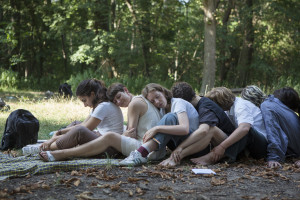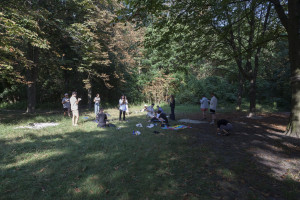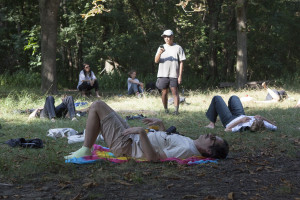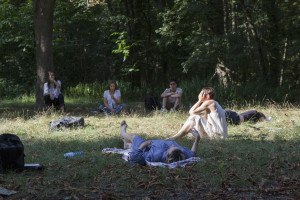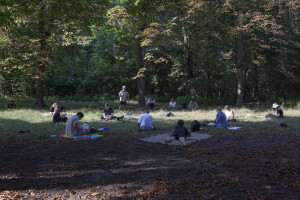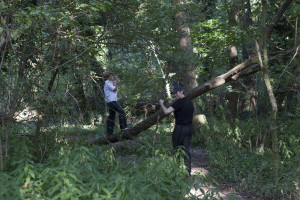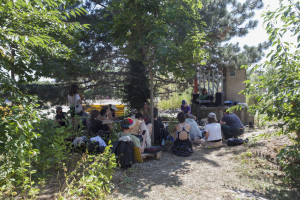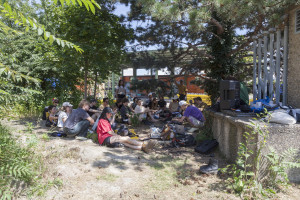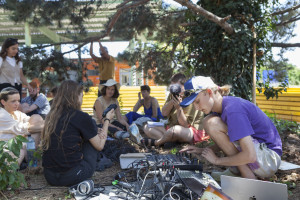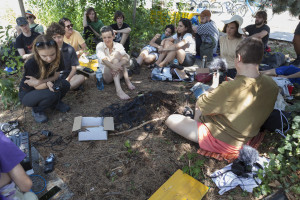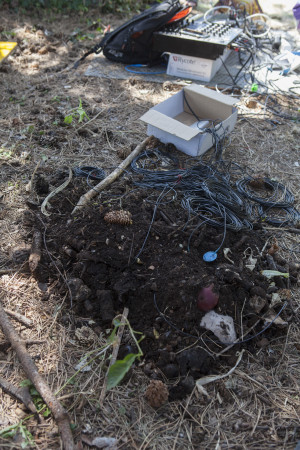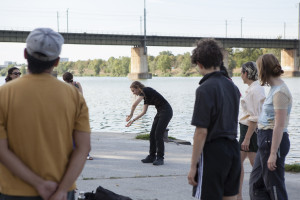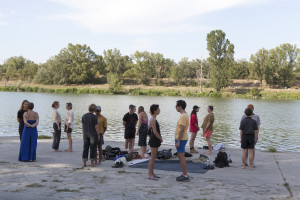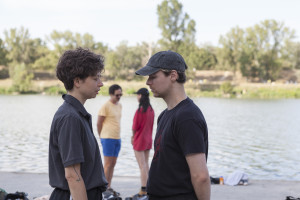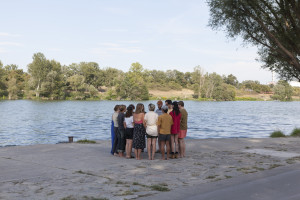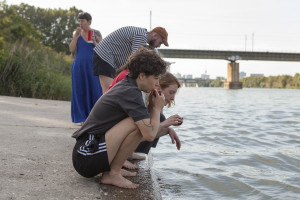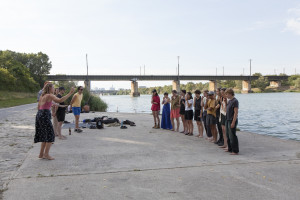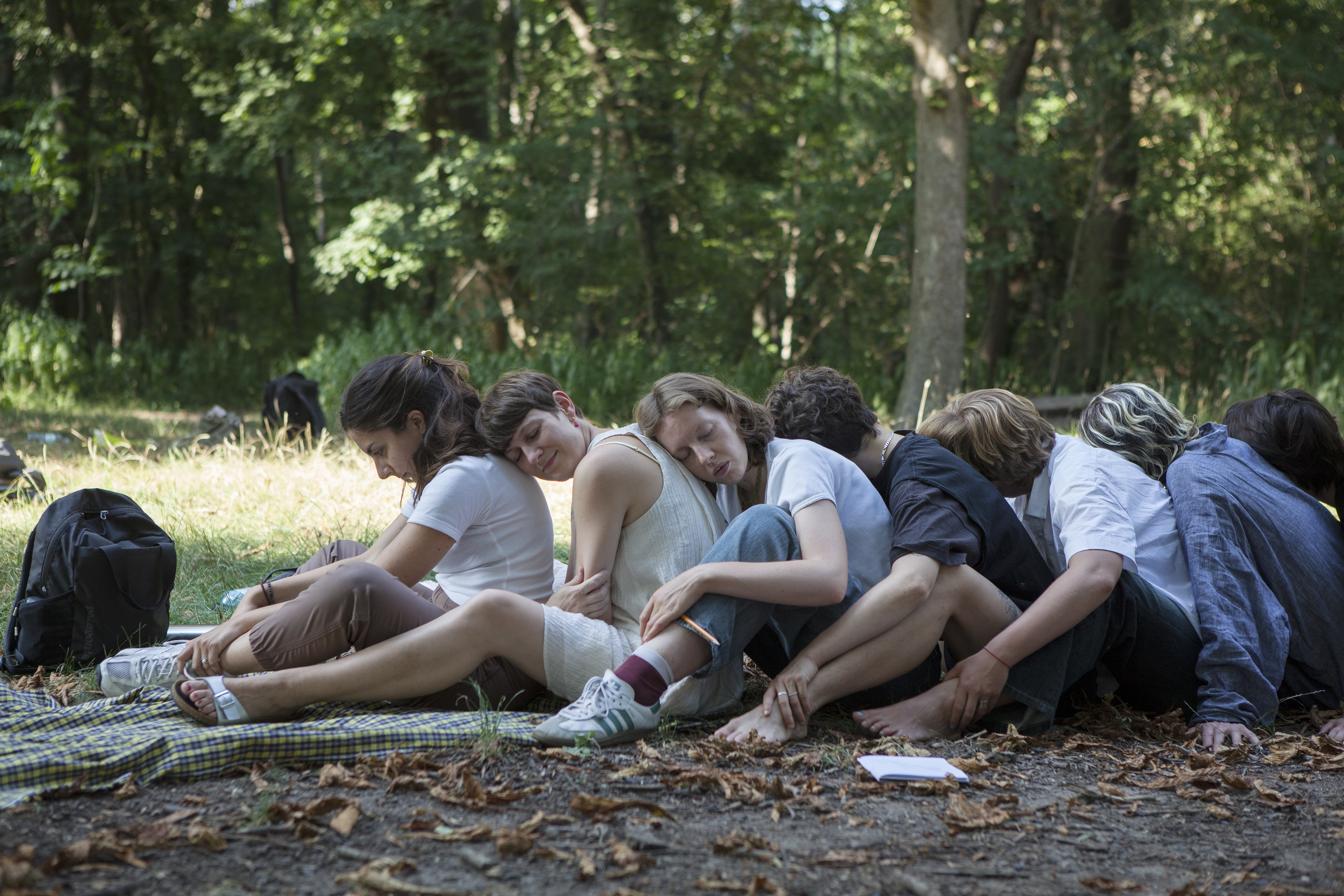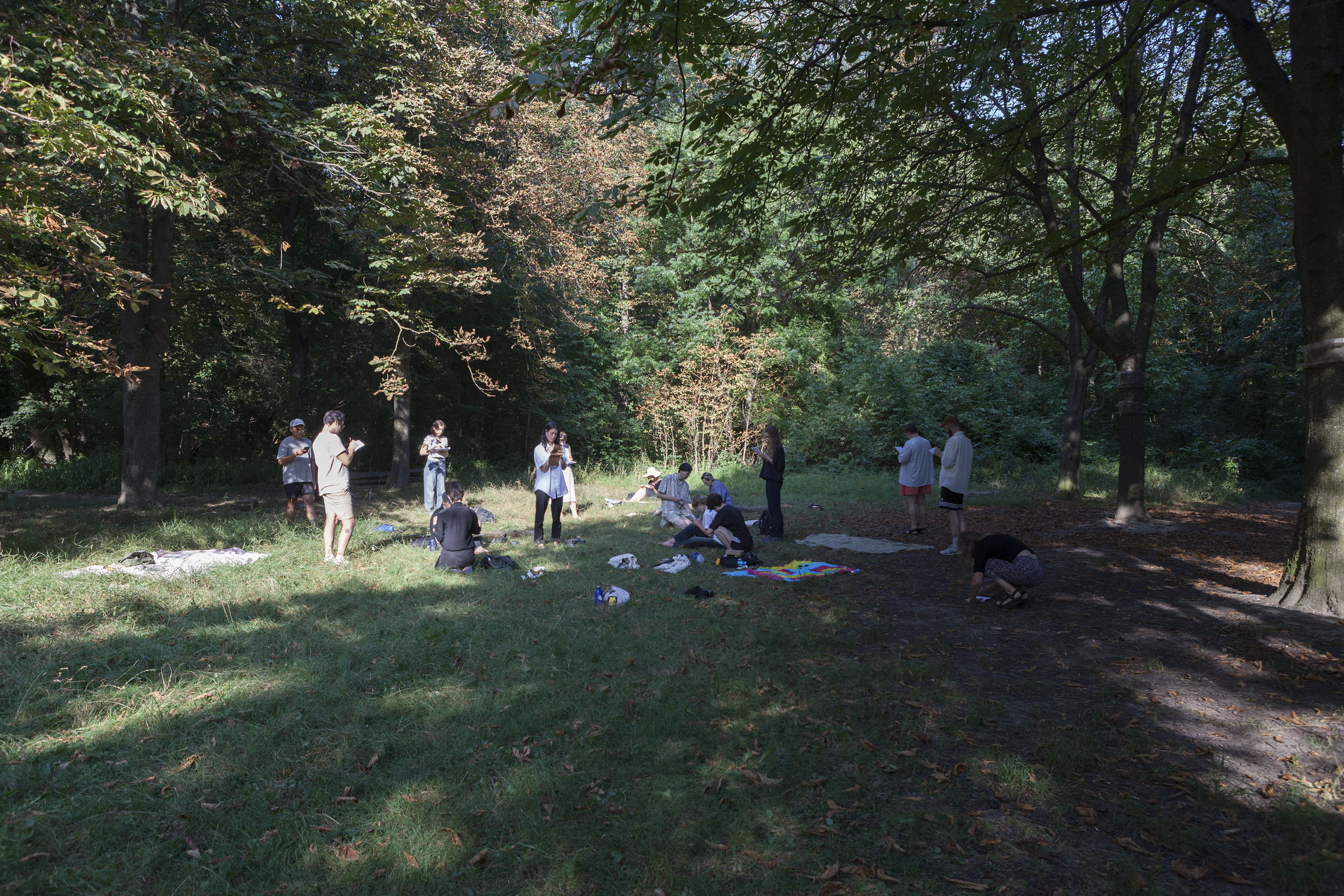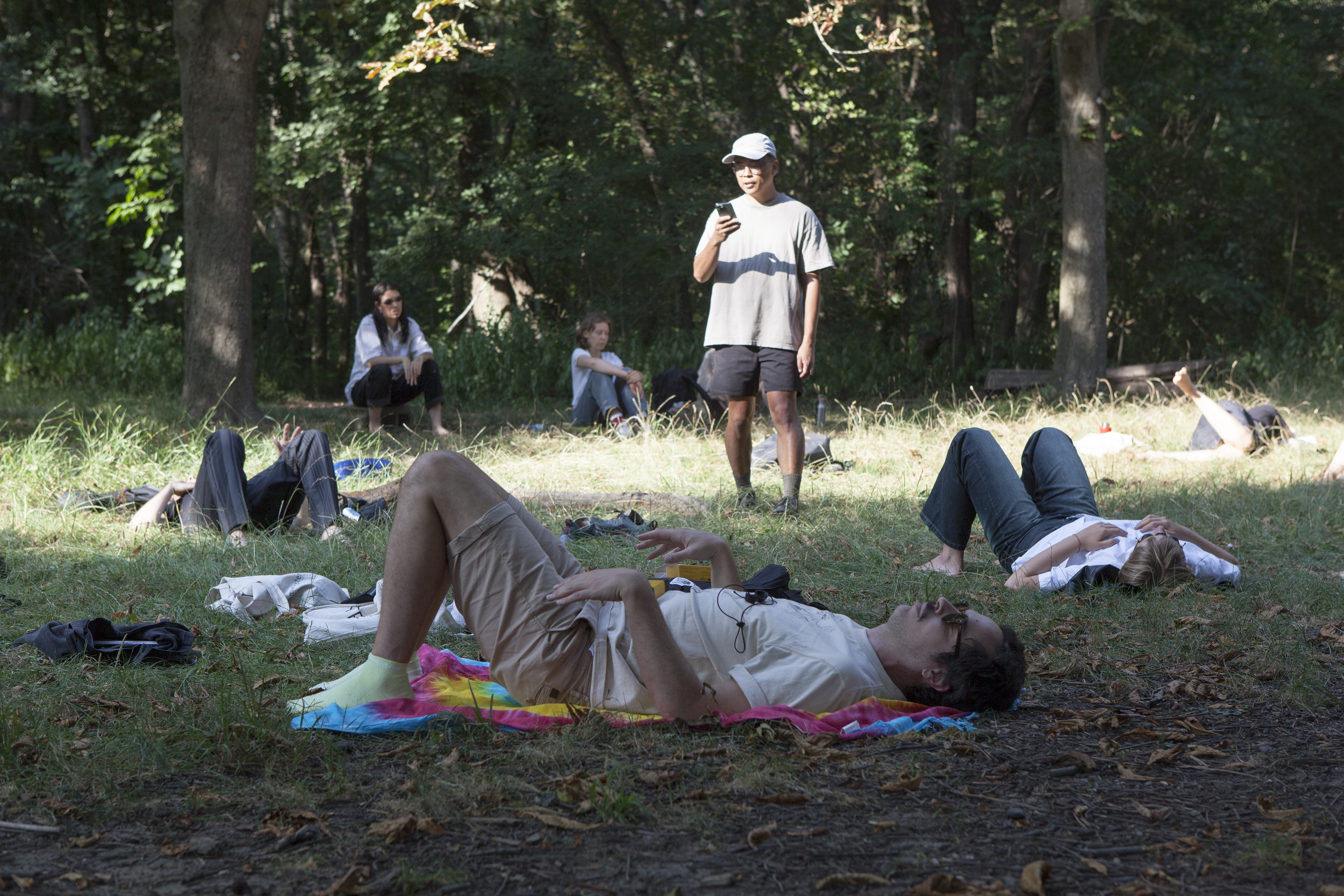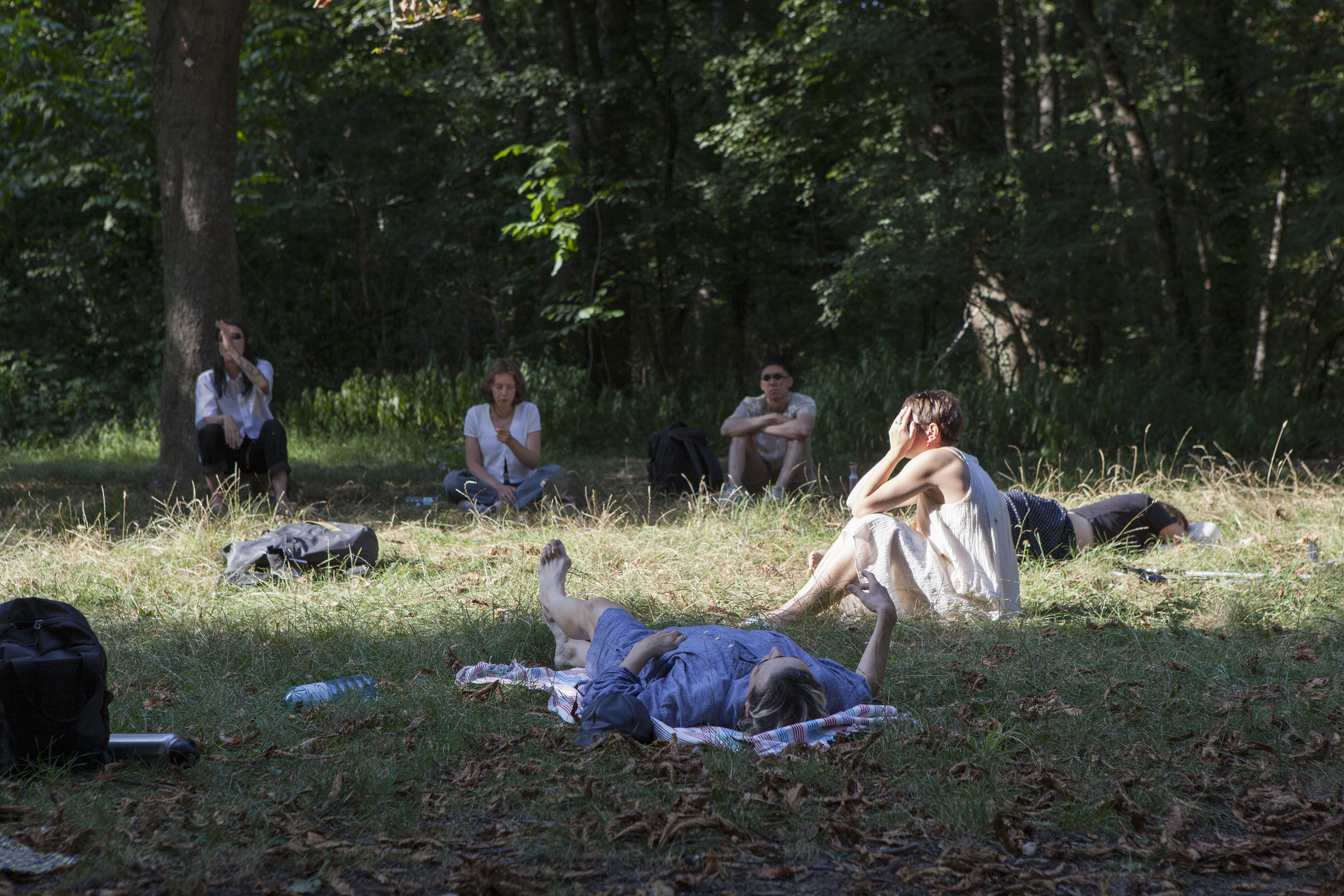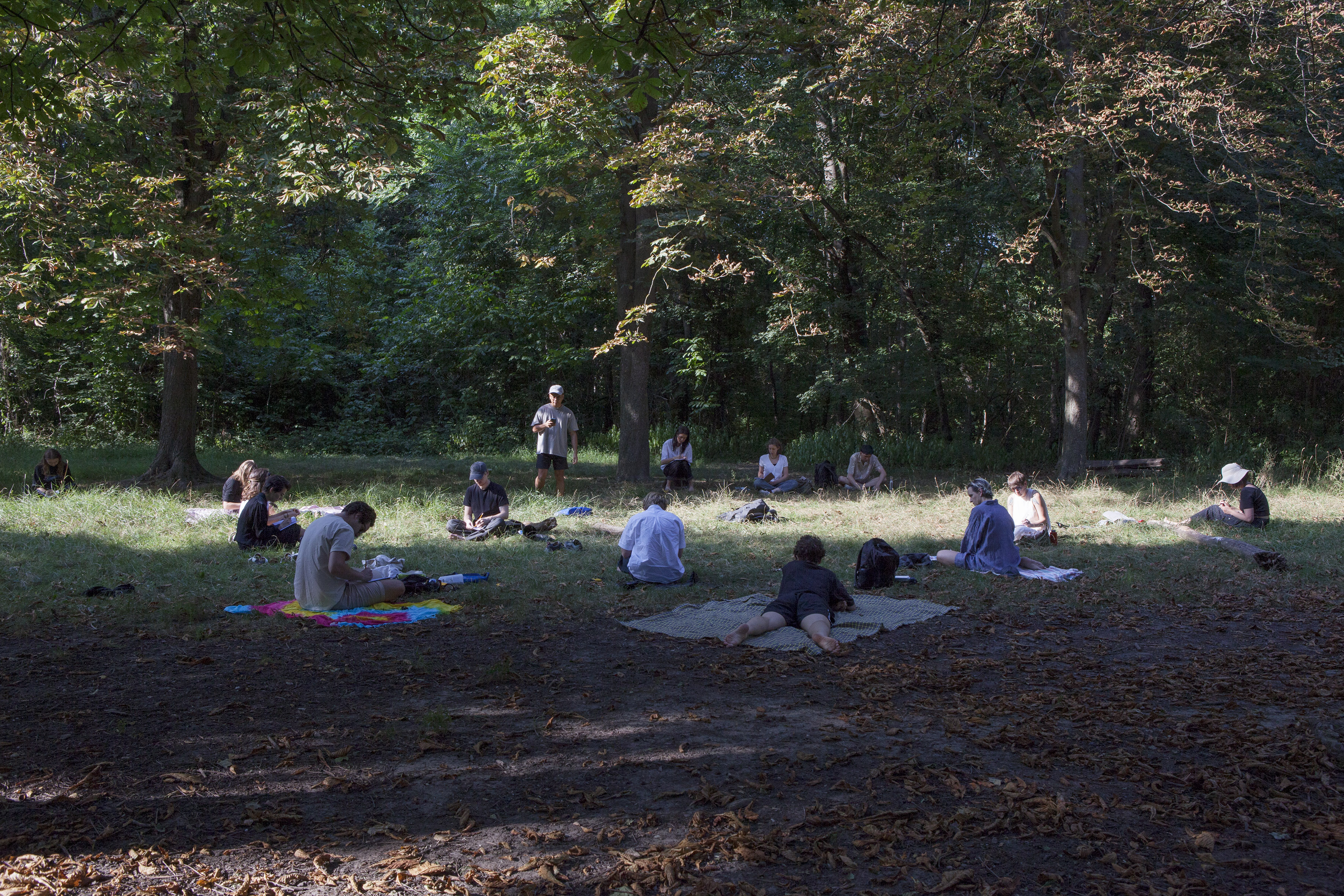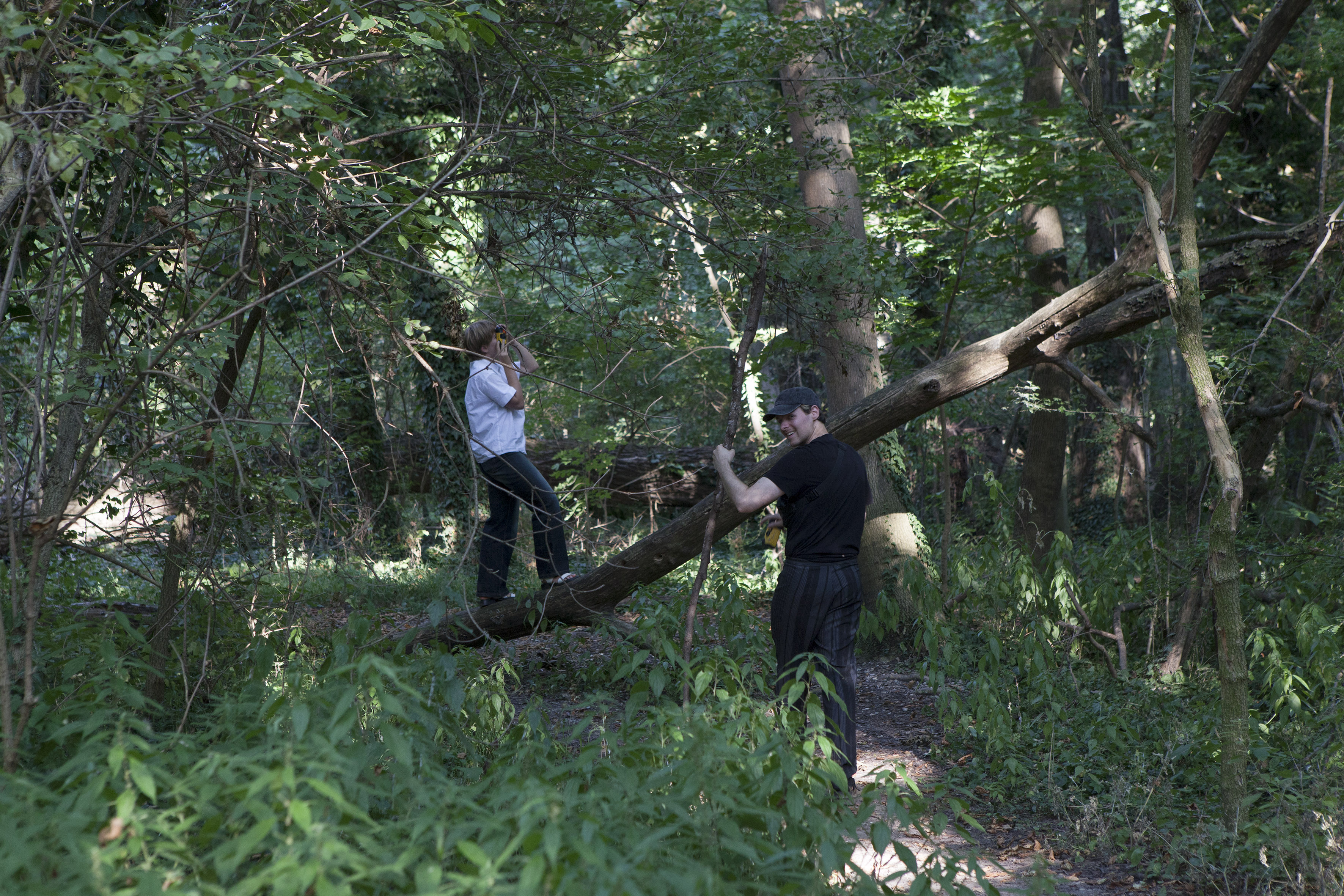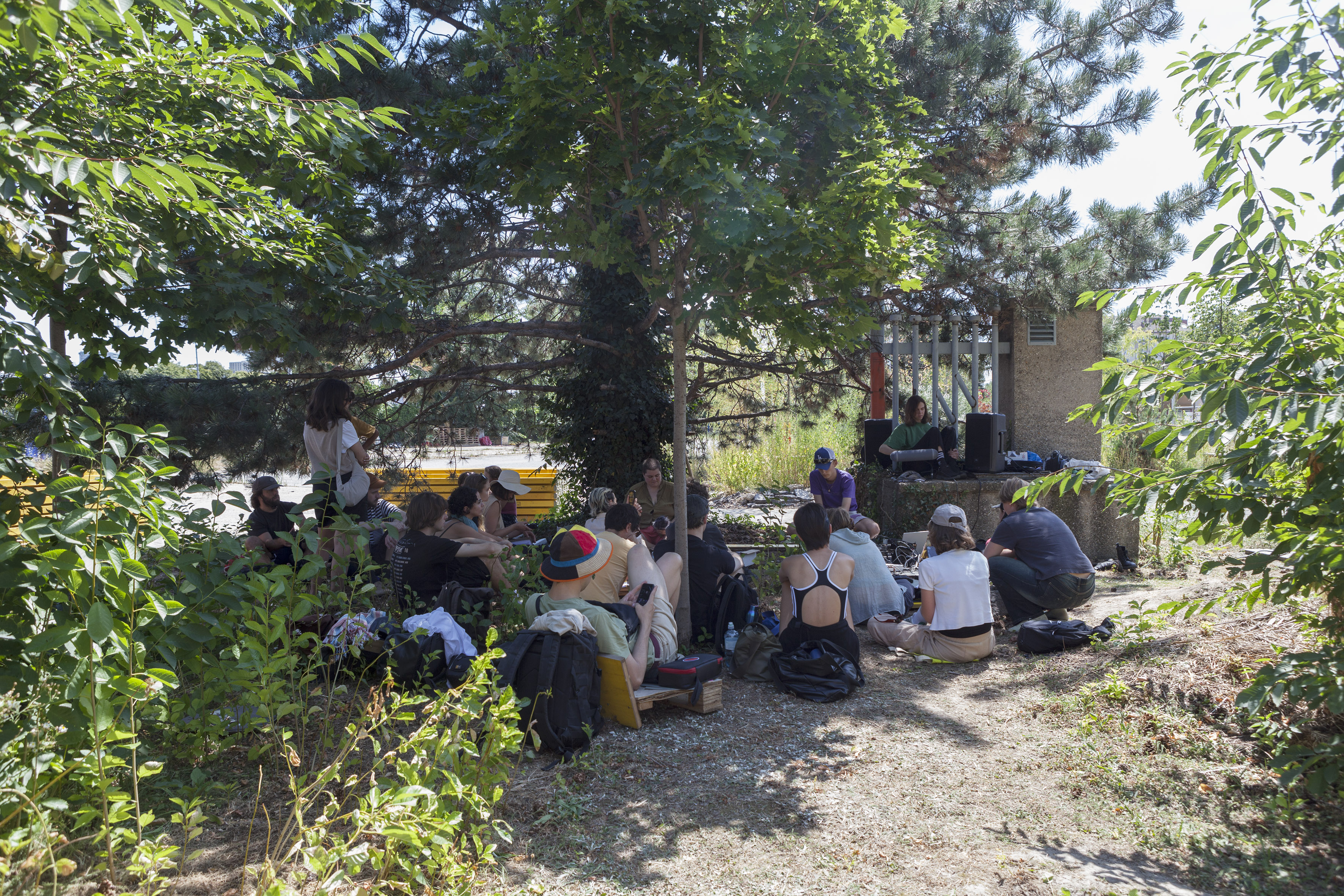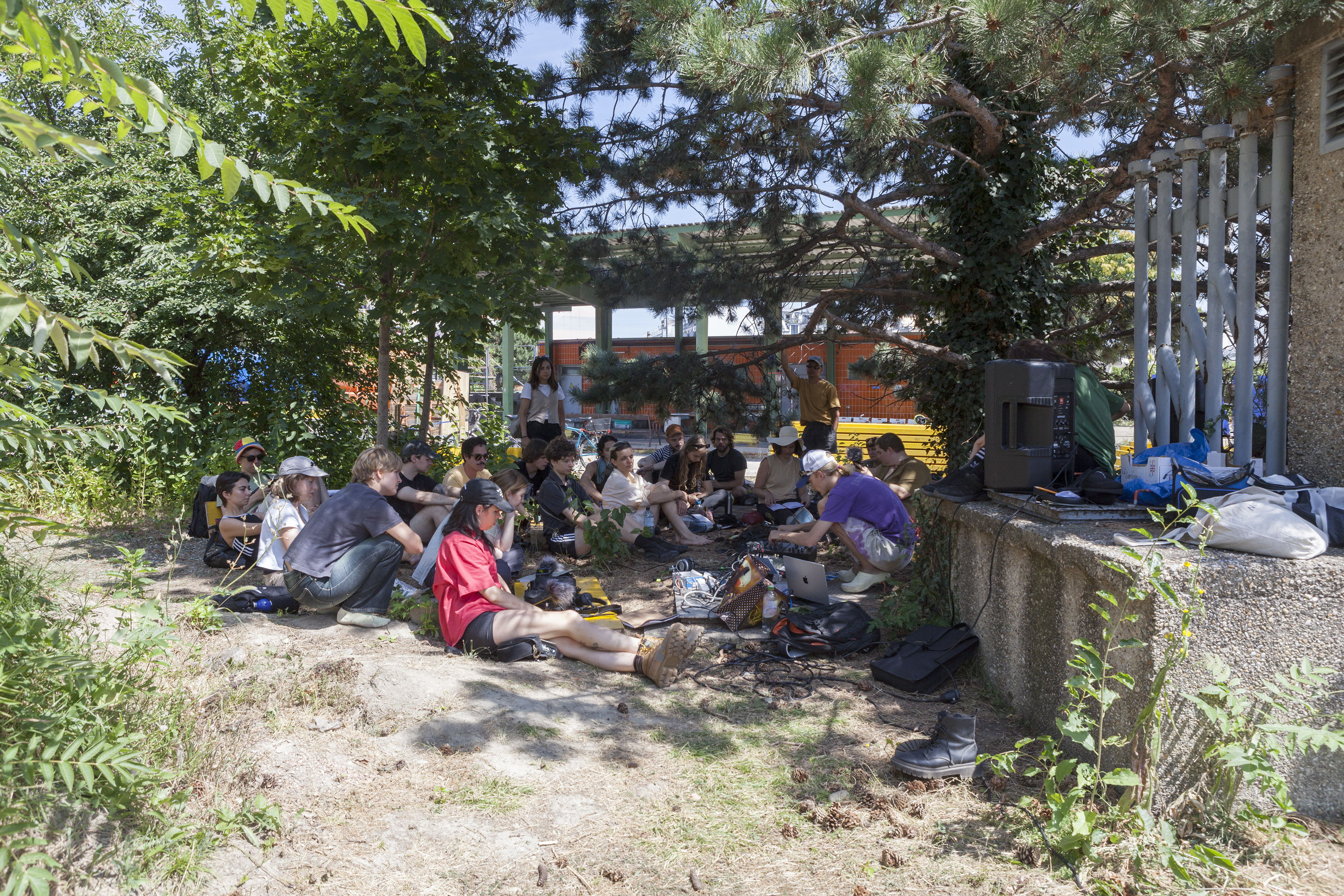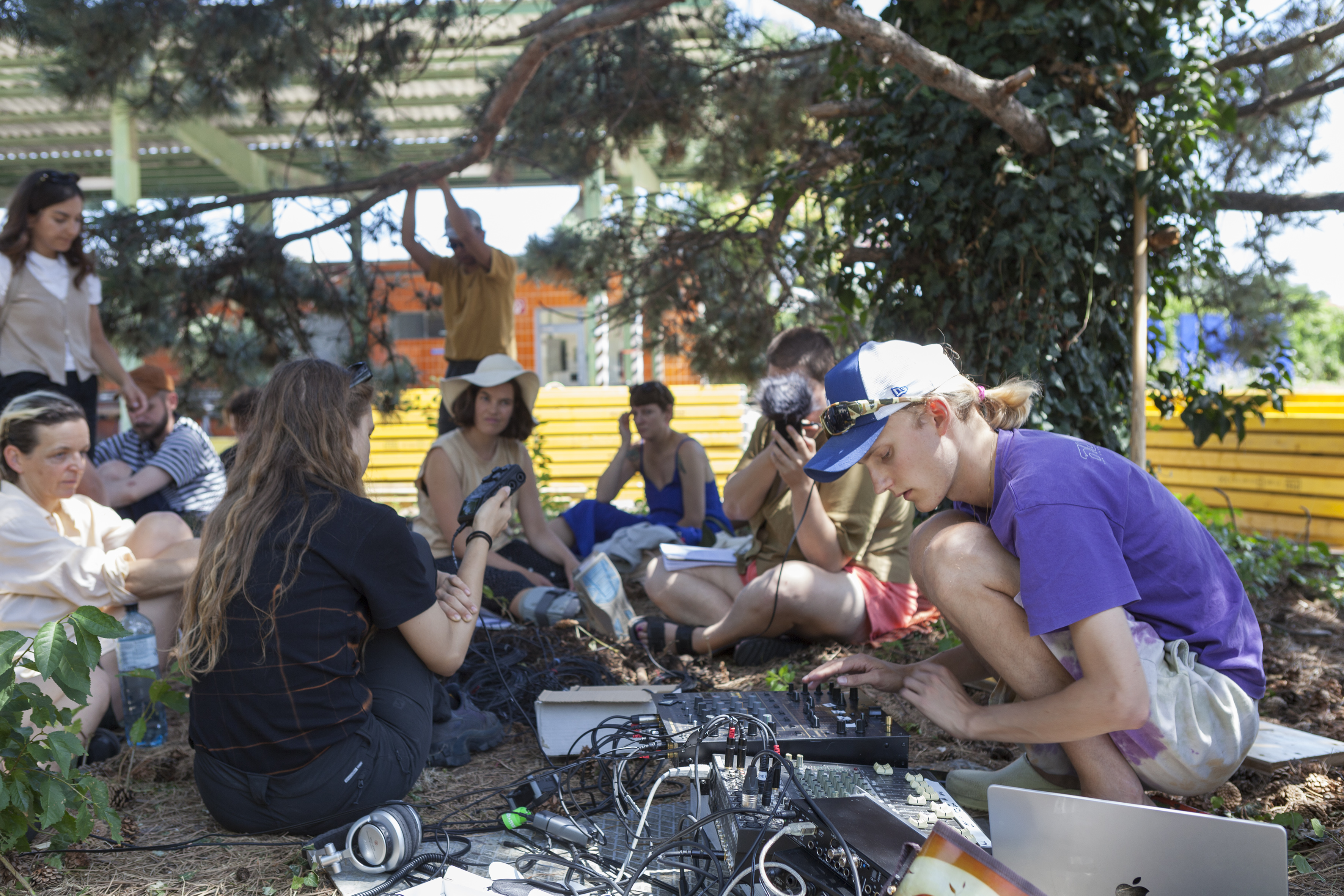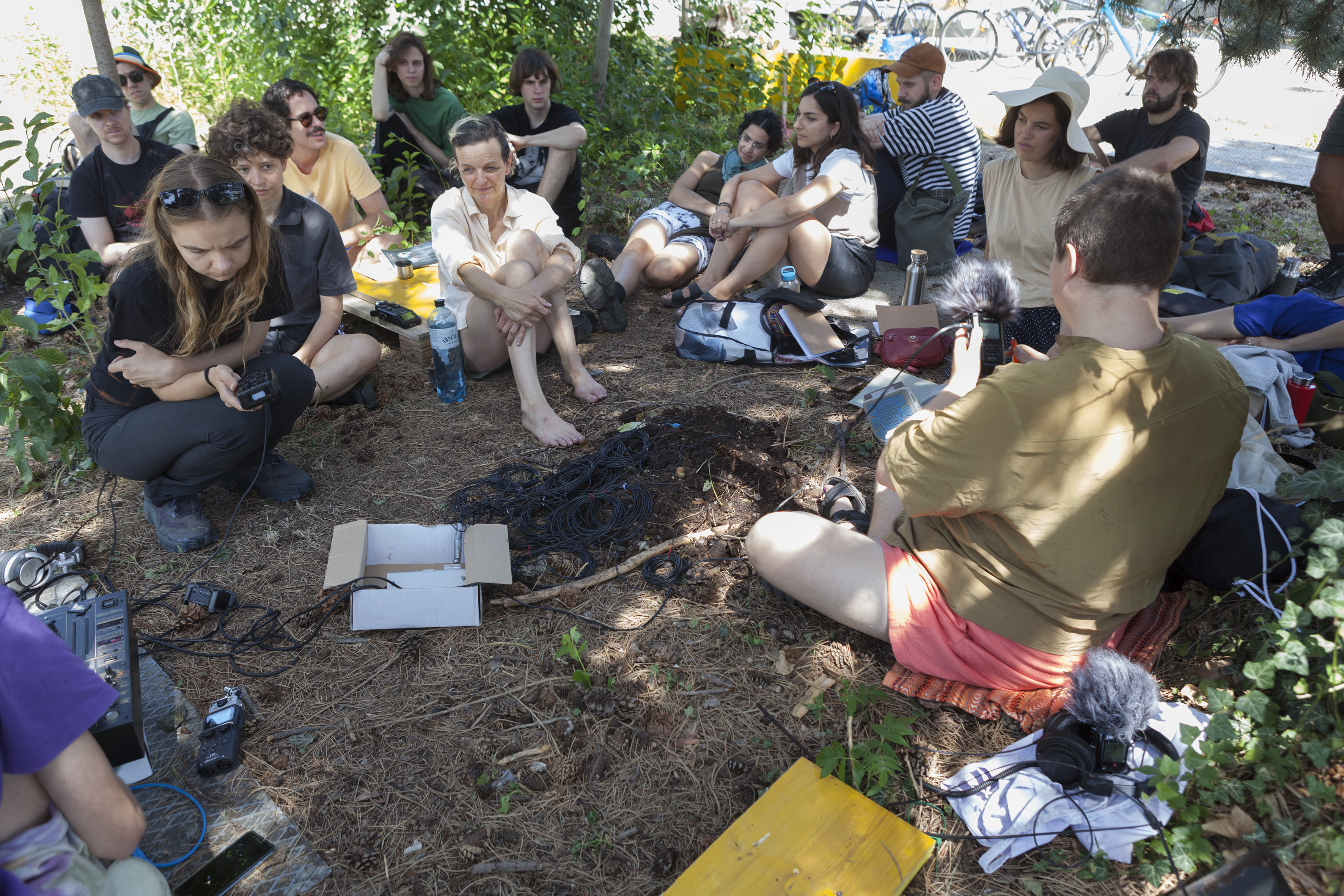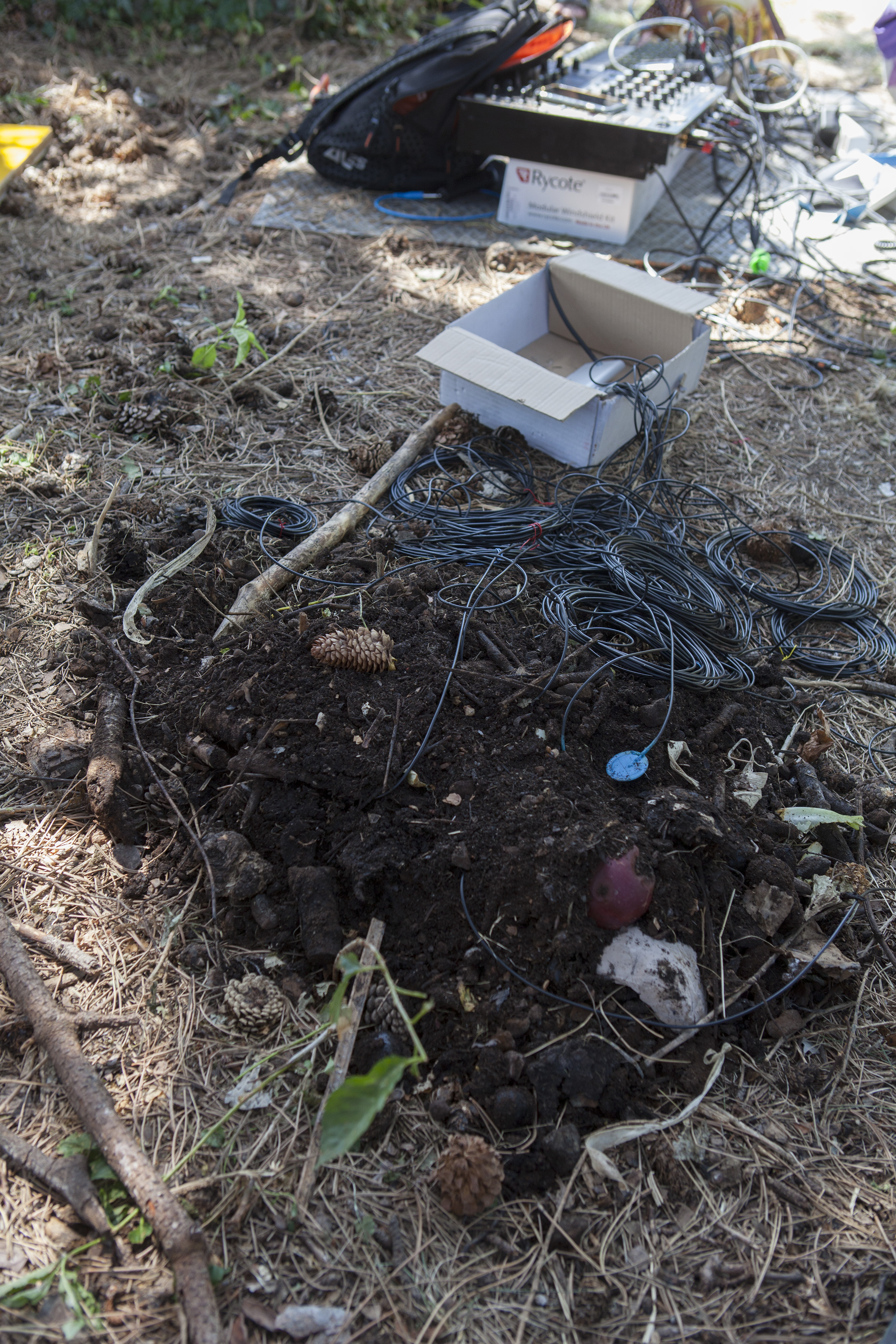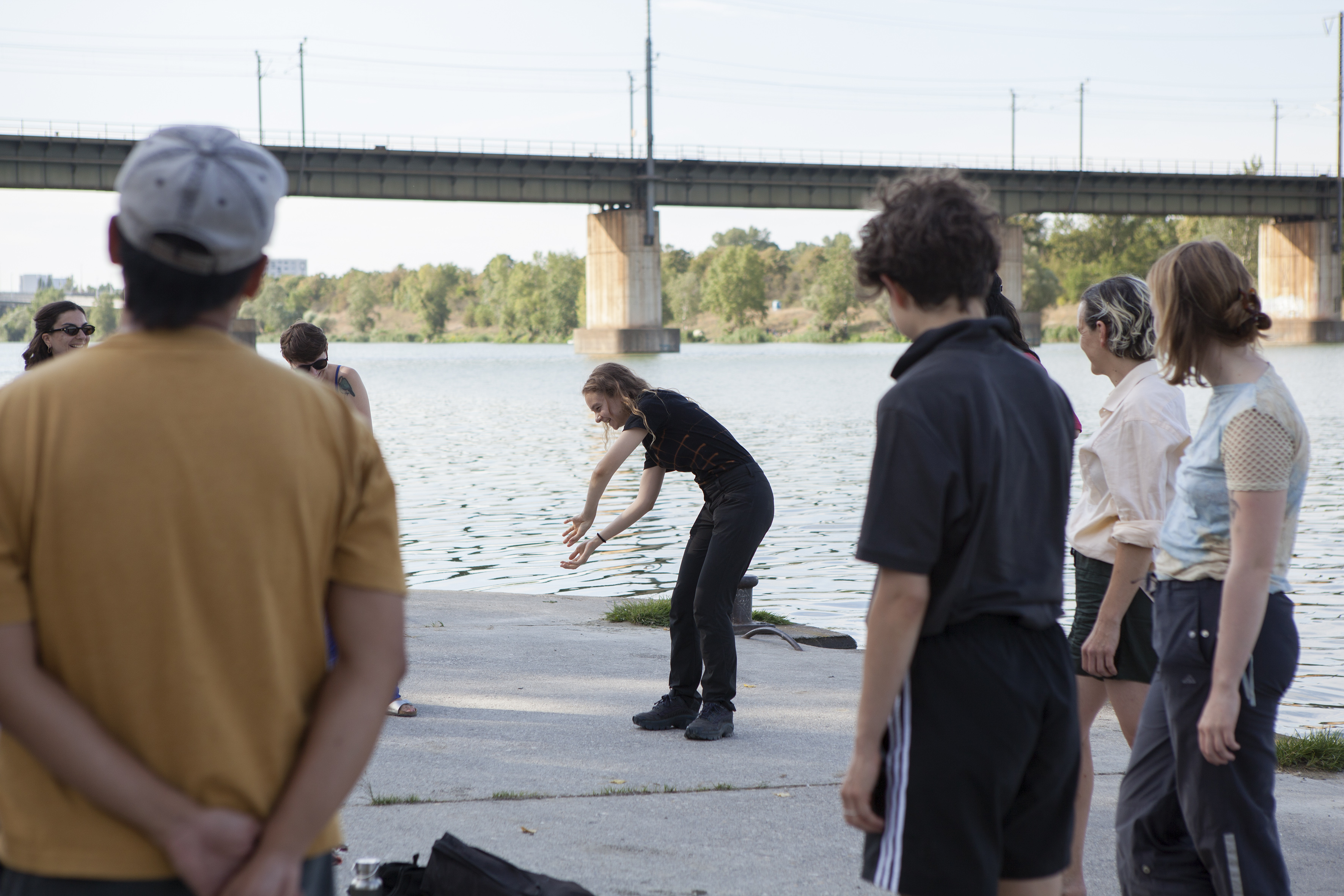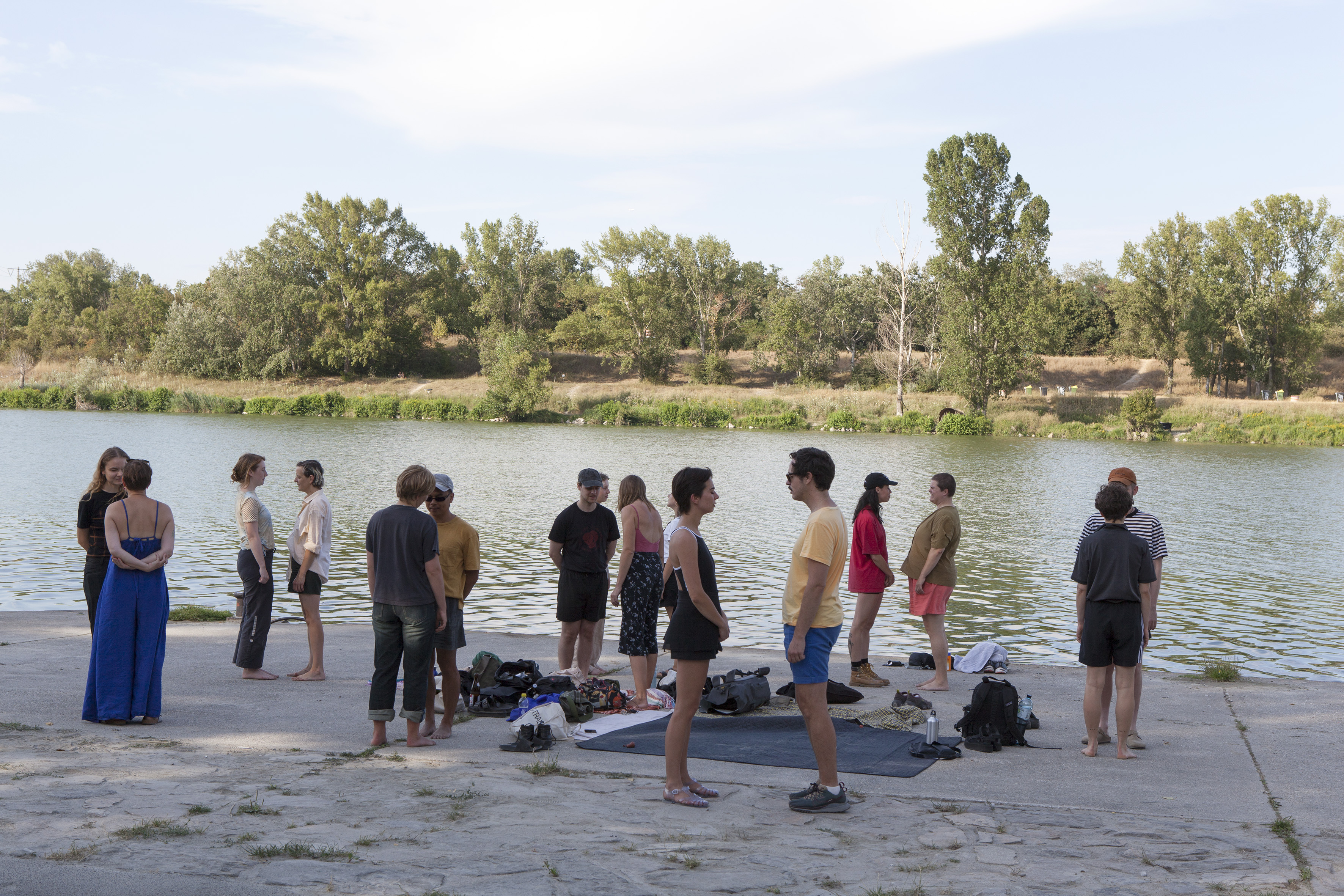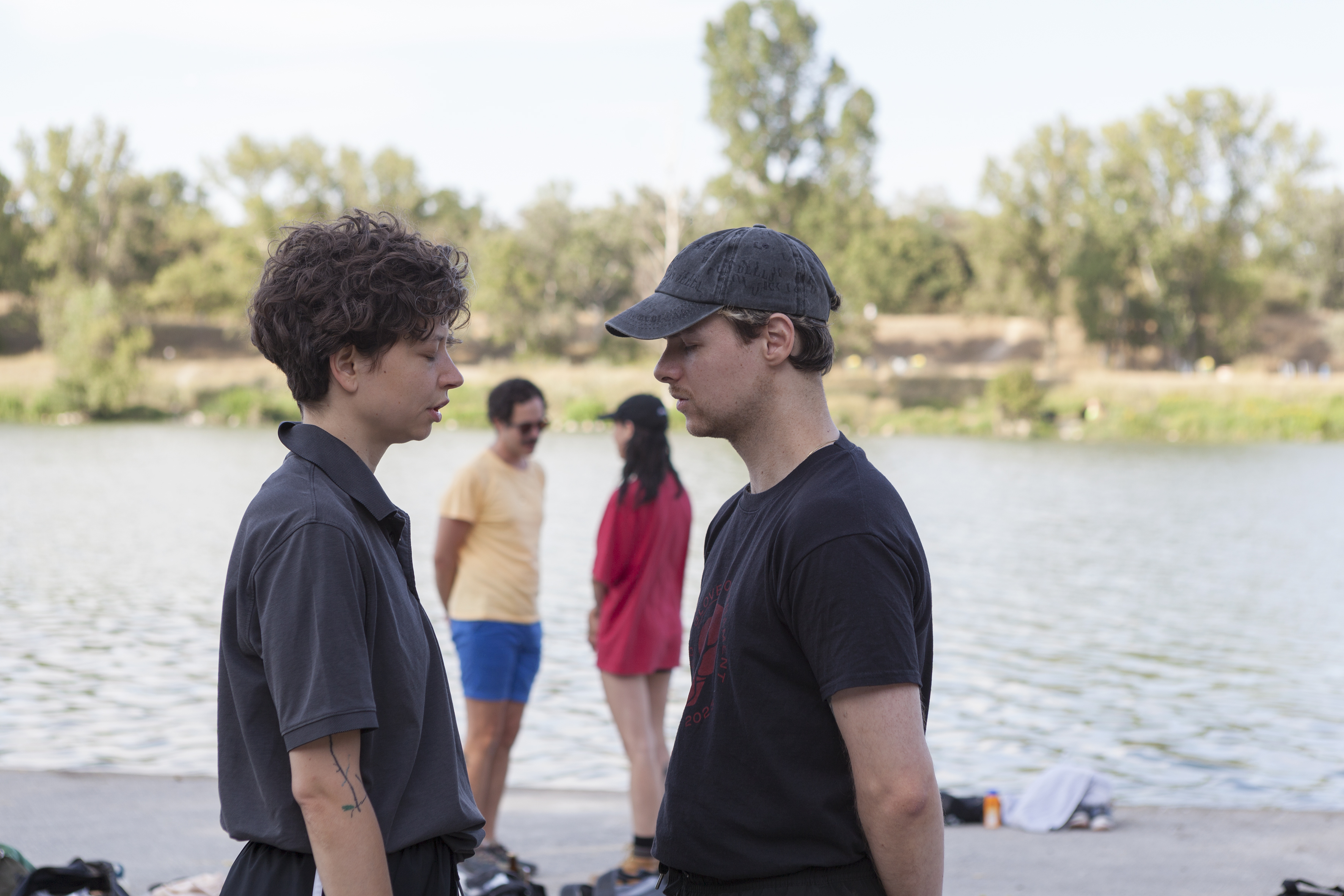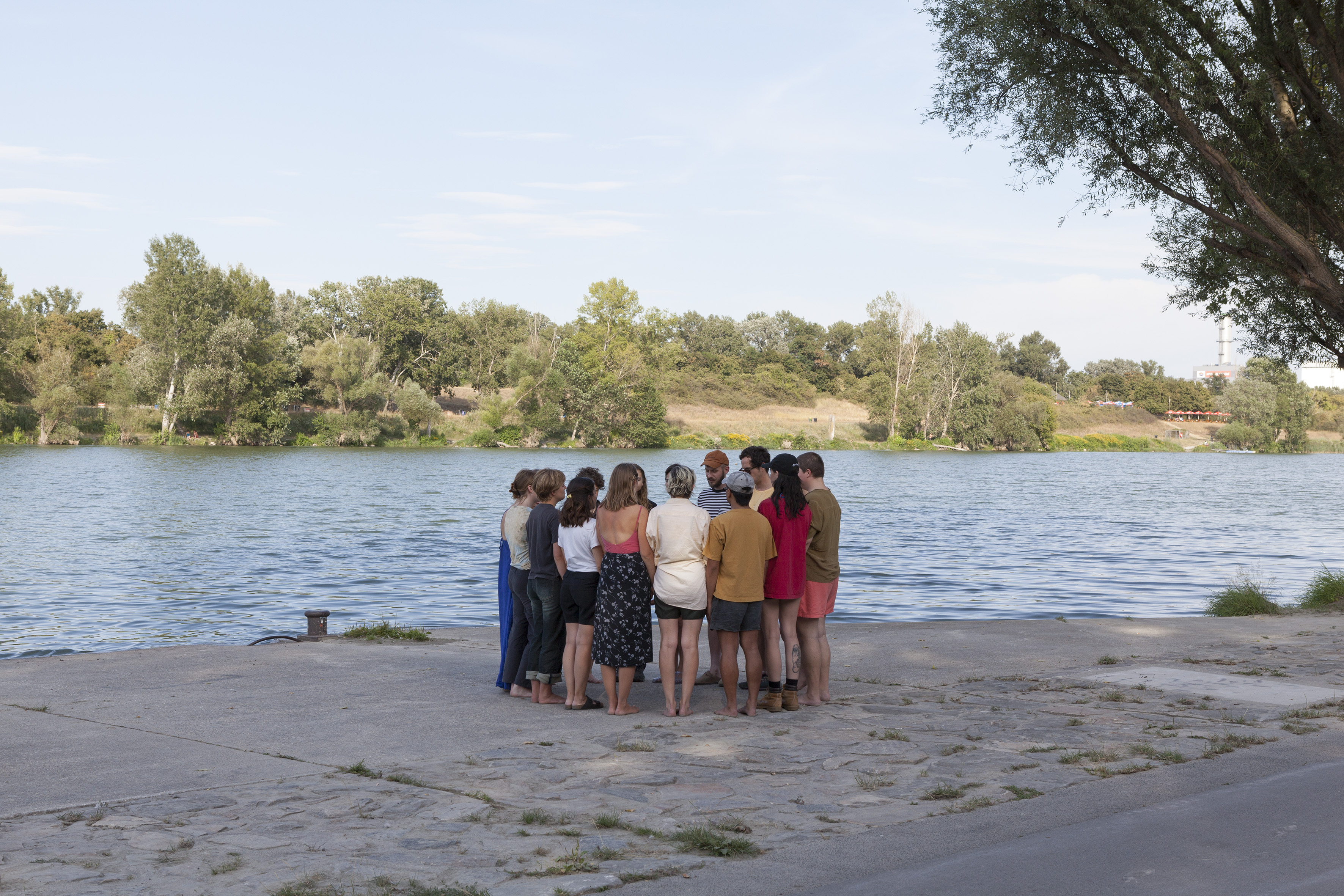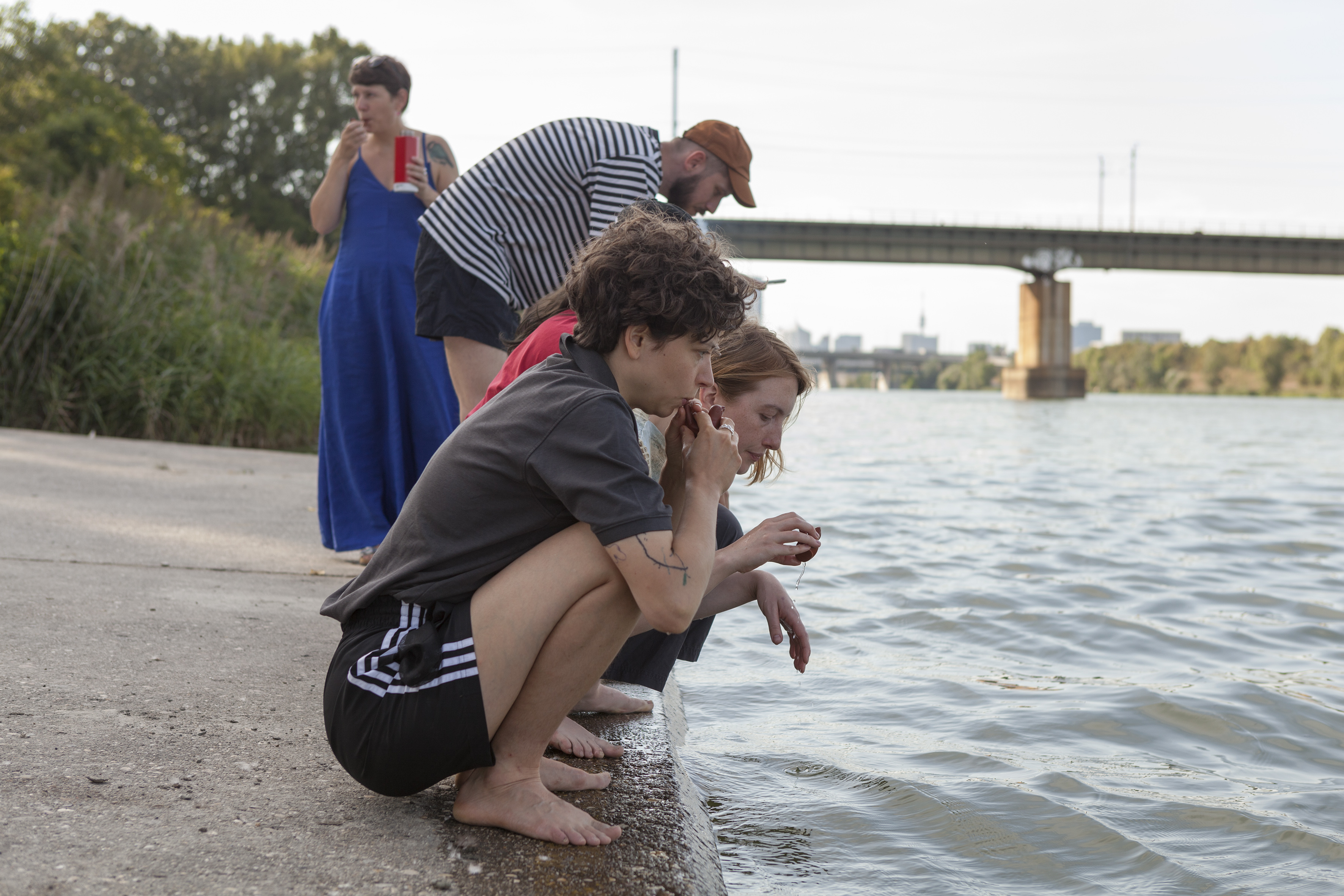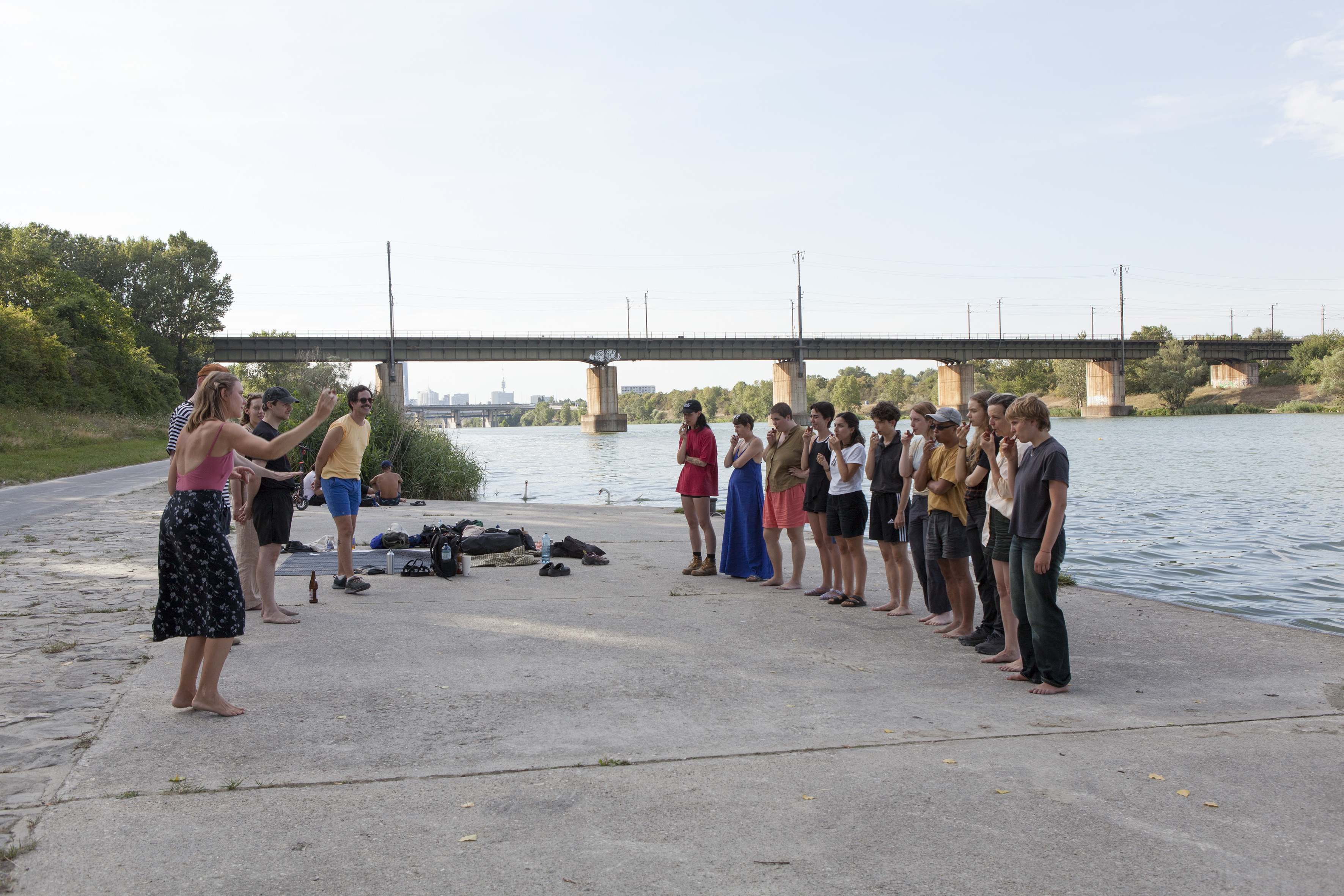The intensifying polycrisis necessitates transformative shifts within our understandings of ecologies, economies and society. This urgency extends to the realms of art and academia, highlighting the need for more speculative research into our relationship with the world as well as the act of creation and knowledge production itself. The 3-day workshop and event series “Intimate Assemblages: #1 Ecologies” aims to delve into diverse organisms and conditions inherent in artistic production and presentation processes, exploring issues of assemblages, coexistence and relationalities. Simultaneously, it raises questions about the roles visual artists and researchers can play in these critical times and how to position oneself within immanent ecologies that are likewise technologically and culturally mediated. The workshop questions how we, as practitioners, can be sensitive in interacting with different ecologies, technologies, and cultural practices, and wants to explore possibilities such as nonviolent extraction, disturbances and the means of labour love.
Kevin Space, alongside the Institute for Postnatural Studies (Madrid), Dennis Dizon (Barcelona), and Klasse für Alle (Vienna), invites participants through an open call for a multi-day workshop. The artists invited to conceive the series aim to contribute to the growing body of multidisciplinary, multisensory, or polydisciplinamory, and hybrid forms of artistic practices. Their goal is to offer insights into their own practices and research topics, all of which occupy the intersections of art, design, technology, critical and queer theory, research, community organization, and engagement with ecology.
During the workshops, participants experiment with cognitive research methodologies that transcend traditional discourse. For instance, Yuri Tuma from the Institute for Postnatural Studies focuses on listening and compassion, Dennis Dizon on methodologies of queer relationalities, intimacies, pleasure, and the act of staring, and Klasse für Alle on tactile and phonetic modes of experiences, and multi-species collaboration.
These practices reside on the fringes, where their interplay generates new meanings and forms of knowledge and serve as experiments in new ways of coexisting on Earth, embodying an intertwining of conceptual, speculative, and material thought. This experiential approach transcends the isolated individual, singular, and binary perspectives, recognizing knowledge generation as an inherently chaotic process that encompasses diverse viewpoints. They share a mutual interest in doing and thinking, creation, and theorization, emphasizing a reciprocal exchange without privileging one over the other.
On a broader spectrum, “Intimate Assemblages: #1 Ecologies” examines tensions between individuals (including artists and participants) and institutions. Going beyond them, it examines avenues for engaged pedagogies, collective learning, and artistic ecologies that can engender new institutionalities. Therefore, this event series serves as an incubator for future approaches and methodologies from both perspectives: artists for research, and institutions for not only speaking on ecologies but also becoming ecological.
Assemblages
One of the primary premises of "Intimate Assemblages: #1 Ecologies" is the recognition of the necessity and inevitability of various assemblages, stretching across different levels and temporalities, both within society at large and within the realm of the arts. As such, the focus is directed toward workshops that facilitate interaction between artists, participants, and other entities. The goal of this series is to contribute to the cross-pollination of ideas and voices, fostering a rich environment for exploration and learning. According to Jane Bennett (drawing from Deleuze & Guattari), assemblages (complex arrangements or combinations of different elements) do not have a single controlling entity (1). Instead, they have the ability to produce new and unexpected characteristics or properties, which emerge from the interactions of the various components.
This concept implies a significant shift in working methods within the workshops. Not only do they shape and develop artistic practices, but they also influence the roles and identities of artists, participants, and the environment. This transition involves moving away from notions of individuality and autonomy towards embracing experimental "contamination", both on a local and global scale. This perspective also calls for reconsideration—at a fundamental level, and in slow, subtle, and unspectacular ways—of how “we” understand and interact with the world. With this, it’s also aimed to explore new ways of communicating and being-with—whether with each other or other non/more-than-humans. Together, we will explore uncharted territories that take forms which generate and shape affects, relationships, and new ways of organizing life in a more decentralized and harmonious eco-coordination, simultaneously stepping back from traditional hierarchical structures of industrial administration.
Listening Entanglements–Institute for Postnatural Studies (Madrid):
During the workshop, Yuri Tuma in representation of The Institute for Postnatural Studies will unfold different approaches, both theoretical and material to facilitate our understanding of the environment. He will particularly focus on the Phonocene, described by Donna Haraway and Vinciane Despret as a possible era of sound, in which listening is claimed as a vehicle to access new ways of inhabiting the territory and the current ecological crisis. From this perspective, the basis for the implementation of new ecologies of coexistence is based on actively listening to the voices of those around us, human and non-human, artificial and organic, imagined and real. In this experimental workshop, we will collectively listen, role-play and perform to enhance and to place our minds, and with it our bodies, in a creative process that will serve as our shared landscape, focusing on new modes for questioning the human/animal binomial through sound ecologies. Collectively we will exercise different ways of embodying an expanded notion of the human-animal through vocal activations, writing, meditation and roleplaying. In the process of creating desirable futures and collaborative healing, we may find unexpected joys that unite us in the contemporary ecological crisis.
The Institute for Postnatural Studies is a center for artistic experimentation from which to explore and problematize postnature as a framework for contemporary creation. Founded in 2020, it is conceived as a platform for critical thinking, a network that brings together artists and researchers concerned about the issues of the global ecological crisis through experimental formats of exchange and the production of open knowledge.
Weather Erotic–Dennis Dizon (Barcelona):
If the emergence of the whole earth image has enabled the planet’s eventual measurement, management and operationalisation—a “sensing machine” of systems and protocols (Majaca, 2024)—how could Earth still be in-/cohabited otherwise? Threading techno-science with queer relationality, Weather Erotic annotates other structures of awareness for a corporeal earth. Stretching the elasticity of “cruising as an unexpected model for an ecological ethic… more deeply attuned to our impersonal intimacies with… elemental strangers” (Ensor, 2017), the workshop experiments with scores of staring as a “nonviolent penetration,” neither exclusive to seeing nor looking (Bersani, 2018). Weather Erotic seeks the affective potential of its tactility, sonic capacity, taste faculty, and the olfactory when examining global heat through the lens of micro-clima(c)tic conditions. Playing with the poetics of scale and elements of the choreographic in-situ, participants will assemble a transmedia archive of (moving) images and field recordings, embodying the (dis)orientations of speculation and (im)precision over the controls of language and gaze.
Dennis Dizon (b. Manila, Philippines) is a research-based artist and writer. Their practice lands at intersections of technology and ecology. They play with rhetoric—in the spectra of the connotative—applying queer relationalities and decolonial practices through poetics and affective attachments.
compost practices: recording, moving, collaborating–Klasse für Alle (Vienna)
compost group members of Klasse für Alle will guide all participants through multiple practices of care related to the activities established at the site of one of their compost heaps, understanding composting as a ritual of gathering, acknowledging, and transformation. By learning to see and recognize nutrient cycles, we give meaning to organic residue and unlearn the human-made definition of waste. Taken from Kim Q. Hall, we question concepts of pureness and toxicity, and apply those ideas to our compost as well as plural modes of sociality that exist therein (2) Sensing those borders by touching, tasting, smelling, listening, recording, composing/decomposing, and contaminating, we nurture relationships between humans, other species, microorganisms, and the environment. In our introductory exercise, we will mix and stimulate our senses, ideas, and bodies. Then, we will focus on moving, recording, and collaborating. Initially we will learn to use technical tools such as microphones and recorders to explore multiple ways of sensing. We will search ways that deepen (listening) processes even more, and alter the common methods of field- to compost-recordings. Collaborating with musician Paul Ebhart, we will mix, alter, and re-play our recordings in a spontaneous and improvised compost sound performance, to discover the outcomes of our shared processes.
Klasse für Alle is a program of continuing education, created by Andrea Lumplecker for the University of Applied Arts Vienna to opening up their institutes and departments to all who are interested in discussing, reflecting upon and re-enchanting our world. KfA invites people of all ages, cultures and backgrounds, from all professional fields, with or without previous education, and with a diverse range of skills and interests, to work with them on building a present and future worth living.
Participants: Anna Jurkiewicz, Céline Mathieu, Freya Coreth, Reed Hexhamer, Jakob Kolb, Manuela Mujiaca, Reza Kellner, Ruby Reding, Sveva Ventre, Vik Bayer, Tea Záchová, Cornelia Herfurtner, Ewelina Węgiel

